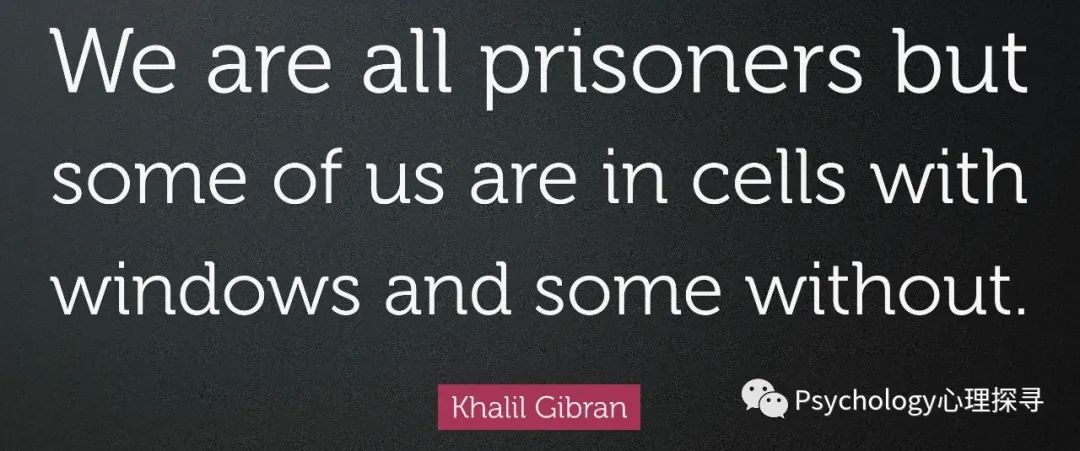新冠疫情所导致的集体创伤
Key Takeaways/概述
Events such as the COVID-19 pandemic can lead to collective trauma or long-term psychological effects that are shared by a large group of people.
像新冠疫情之类的事件会导致集体创伤,即对大规模群体共同产生长期心理影响。
Collective trauma can be caused by events such as war, natural disasters, mass shootings, genocides, and pandemics.
集体创伤由诸如战争、自然灾难、大众枪击事件、种族屠杀和疫情等事件引发。
Such events can lead to heightened vigilance, increased fear, and challenges to individual and collective identity.
这类事件可能会导致警惕性增强、恐惧感增加、对个人或集体身份认知产生负面影响。
When dealing with something like COVID-19, much of the focus is on the prevention and treatment of the disease. The immediate effects are of the utmost concern, but it's also important to consider the longer-term collective trauma of the pandemic.
在应对诸如新冠之类的事件时,大部分注意力都放在了预防和治疗上。即时影响是人们最关心的问题,但考虑疫情所产生的长期集体创伤,也是非常重要的。
Collective trauma refers to the psychological upheaval that is shared by a group of people who all experience an event. This type of trauma can affect groups of people of any size, including entire nations or societies.
集体创伤是指共同经历某一事件的一群人集体产生的心理动荡。这类创伤会影响各种规模的人群,其中也包括整个国家或社会。
Causes of Collective Trauma 集体创伤起因
Major events that are witnessed or experienced by a large group can affect how people feel and act—and sometimes such events can result in cultural shifts and societal changes. There are a number of events that may cause collective trauma in a group:
一个大规模群体共同目睹或经历的重要事件会影响到人们的感受和行为——有时这类事件会导致文化与社会变化。有很多事件可能会导致集体创伤:
Wars/military conflict/战争/军事冲突
Terrorist attacks/恐怖袭击
Natural disasters/自然灾难
Economic disasters/经济灾难
Mass shootings/violence/大众枪击/暴力
Genocide/种族屠杀
Pandemics/疫情
There are different types of collective traumas. Some are immediate and relatively limited in duration. Examples include 9/11 and natural disasters such as Hurricane Maria. Others are less immediately dramatic, but much more prolonged, such as an extended pandemic, economic downturn, or military conflict.
集体创伤有多种类型。一些为即刻发生、时长较短的事件,比如9/11事件或诸如飓风玛丽亚等自然灾难。其他一些虽然并非立即造成重大灾难,但却延续很长时间,比如长期疫情、经济下滑或军事冲突等。
Sometimes these events are witnessed first hand, but in some cases, they are observed through mass media. The terrorist attacks of September 11, 2001 are an example of an event that many people witnessed via live television broadcast and through media exposure following the event.
有时,人们是亲眼目睹这类事件,但有时则是通过大众媒体了解。2001年的9/11事件中,就是很多人通过电视直播和之后的媒体报道追随这一事件的。
The COVID-19 pandemic is a global event that will result in both individual and collective mental health effects. The social and economic impacts remain to be seen, but it is likely there will be long-term societal mental health consequences of the pandemic.
新冠疫情是一件会造成个人和集体精神健康影响的全球事件。其造成的社会与经济影响依旧在徐徐显露,但同时也可能将会对社会精神健康造成长期影响。
How Trauma Works 何为创伤
Brains respond in split seconds, almost entirely involuntarily, to traumatic threats, the moment they happen, in one of three ways.
在创伤事件发生时,大脑瞬间自动做出以下三种反应中的一种:
· Fighting (“Fight”) or/攻击,或
· Fleeing (“Flight”) or/逃跑,或
· Freezing/being immobilized (“Freeze”)/怔住
How Trauma Works After the Event Is Over 事件结束后的创伤影响方式
After the traumatic event, if we have been traumatized, we retain permanent memories of the experience. When the memories surface, if they trigger us, they are called symptoms. Symptoms show up in three ways:
在创伤事件结束后,如果我们受到创伤影响,我们会对这一经历持有永久的记忆。当这些记忆浮现时,如果它们触发我们,就会产生症状。症状有以下三种表现方式:
· Body sensations/身体感受
· Feelings/内心感觉
· Thoughts/想法
Often symptoms reflect the involuntary responses of fight, flight, or freeze. The Holocaust Is Over, We Must Rise from Its Ashes, is the title of a book by the former speaker of the Israeli Knesset, Avrum Burg. It conveys these three aspects of the collective trauma of the Jewish Israeli people—the despair felt by people in the ashes, the sensation of being immobilized or frozen in that state, and the thought, that people must rise and join the present.
通常这些症状反应了攻击/逃跑/怔住等自主反应。在以色列议会前发言人 Avrum Burg的著作《Holocaust is Over,We Must Rise from Its Ashes》一书中,这一书名就传递了以色列犹太人的集体创伤的三个方面——Ashes反映了人们内心感觉到的绝望;此种状态下怔住、不能动弹的身体感受,以及“人们必需站起来应对现在”这种想法。
The Key Repetitive Dynamic Summed Up 创伤重复性的主要驱动因素概述
Memories of traumatized groups scar permanently. If the group again feels threatened, memories are triggered and impede functioning. This results in little or no change in responses, responses that may not fit a current situation. Moreover, the memories of the trauma continue to be transmitted across space and time, resulting in familiar if not predictable responses, also renewing the cycle of history’s repetition.
“Does traumatization and its transmission contribute to the repetition of history?” The answer is “Yes.”
受创伤影响的群体的记忆会产生永久伤痕。如果这一群体再次感受到威胁,那么这一记忆就会被触发,从而阻碍这一群体的正常机能。群体现在所产生的反应与之前的反应几乎会毫无不同,但却已经不适合现在情形。另外,创伤的记忆会继续跨越空间和时间传递,导致一些即使无法预测但却也似曾相识的反应,从而延续了历史的不断循环重复。
“创伤以及创伤的传递,是否是历史重复性的原因之一呢?”答案是“是的。”
History of Collective Trauma 历史上的集体创伤事件
In order to get a better idea of the potential shared impact of the pandemic, it can be helpful to look at some of the long-term effects of past events. Some examples of real events that have led to collective trauma include:
为更好理解这次疫情的潜在集体影响,我们不妨看一下历史事件所产生的长期影响。一些导致了集体创伤的真实事件包括:
01 The Great Depression 经济大萧条
The severe global economic depression of the 1930s left a deep and lasting impact on the American collective psyche. This economic contraction had a major impact on individual mental health at the time of the crisis—suicide rates rose by 22.8% during the years of the Depression.The depression also had a longer-lasting mark on the U.S. population, leaving many people with feelings of anxiety and vulnerability.
上世纪30年代的严重经济衰退对美国集体心理造成了深刻持久影响。这一经济紧缩在当时危机发生时对个体精神健康产生了重大影响——在当时年份,自杀率飙升22.8%。同时这一经济萧条时期也对整体美国人群产生了更持久的影响,让很多人感受到焦虑和脆弱。
02 World War II 第二次世界战争
The psychological trauma of World War II and the Holocaust had a lasting impact on those who lived through those experiences as well as future generations. Research has found that while Holocaust survivors displayed remarkable resilience in the face of trauma, the psychological impact, including increased symptoms of PTSD and decreased mental well-being, continued for decades.
Lingering effects of the Holocaust also left a mark on parental mental health, family structure, stress levels, and perceived parenting quality, all of which played a role in affecting the children of Holocaust survivors.
二战与犹太大屠杀对其经历者以及未来数代人都产生了持久的心理创伤。研究发现,尽管犹太大屠杀幸存者在面对创伤时展现了非同凡响的坚韧品质,但这一事件造成的心理影响却延续了数十年,其中包括PTSD症状增加,心理健康程度下降。
犹太大屠杀事件所产生的影响至今依旧存在,它同时也在父母精神健康、家庭结构、压力程度、观测到的育儿水平方面留下印记,而这些因素都影响着该事件幸存者的后代。
03 September 11, 2001 Attacks 2001年9/11事件
Over 100,000 people witnessed the attacks on the World Trade Towers directly while millions more watched the event unfold on live television or saw video clips replayed in the days, weeks, and months that followed.
Research suggests that the event led to some clear negative reactions including religious discrimination and political intolerance towards Muslims, or people who were perceived as being similar to or affiliated with the attackers.
约有10万人直接目睹了对世界贸易中心大厦的这一袭击,而数百万人则是在之后数日、数周、数月内通过电视直播或视频片段的方式了解这一事件的。
研究显示,这一事件导致了一些明显的负面反应,其中包括针对穆斯林或者任何被视为与袭击者相似或有关联之人的宗教歧视或政治排斥。
04 The Great Recession 经济大衰退(2008金融危机)
The economic contraction that occurred in 2008 had a significant impact on physical and mental public health. Research suggests it led to declines in self-rated health and fertility as well as increases in psychological distress, suicide, and morbidity.
2008年的经济紧缩对生理与精神公众健康都产生了严重影响。研究显示,它导致了人们自我评测的健康程度与生育能力的降低,同时也导致了心理疾病、自杀率和患病率的升高。
Impact of Collective Trauma 集体创伤的影响
At the societal level, studies have shown that some of the potential lasting impacts on future generations include:
在社会层面上,研究显示对未来数代人的一些潜在持久影响包括:
Increased individual and collective fear
个体与集体恐惧感增加
Damaged national pride
民族自豪感受损
Feelings of humiliation
羞辱感
Identity crisis
身份危机
Increased feelings of vulnerability
脆弱感增加
Heightened vigilance for new threats
对新威胁警惕感增强
The beliefs that people previously held about their society are shaken or even shattered. People may question the future of their society and whether it's safe or wise to continue their affiliation with the group.
人们之前对社会的认知被动摇甚至土崩瓦解,人们可能会质疑他们社会的未来,以及继续选择待在这个群体中是否是安全或明智的选择。
The nature of collective trauma can sometimes make it difficult to study the long-term effects on individuals and society. For example, while there have been numerous studies on the impact of 9/11, there is little research on the developmental impacts that the attacks may have had on children who went through the experience.
集体创伤的本质有时让人难以去研究它们对个体和社会的长期影响。例如,尽管对9/11事件的影响有众多研究,但几乎没有研究活动去研究该袭击对经历该事件的儿童们的成长所产生的影响。
The reason for this is that because nearly every American child was exposed to the crisis, making it difficult to find participants who didn’t share that experience to serve as controls.
之所以如此,是因为几乎每个美国儿童都暴露于这一危机之中,因此很难去找到没有经历这一事件的儿童去作为对照。
Mental Distress 精神问题
Psychological distress is common following a trauma. In one study looking at the immediate and long-term effects of 9/11, researchers surveyed more than 3,400 people and found that media-based exposure was associated with increased psychological distress. This distress included acute stress, posttraumatic stress disorder (PTSD), and continued fears of subsequent terrorist attacks.
在创伤事件之后,普遍会发生心理问题。在一项针对9/11即时与长期影响的研究中,研究人员调研了3400位参与对象,发现媒体报道接触程度与心理问题程度增加相关。这些问题包括:急性应激障碍、PTSD、以及对后续恐怖袭击的持续恐惧。
Transgenerational Effects 代际影响
Collective trauma may be passed down to future generations. Researchers suggest that these traumatic historical events create a collective memory. This collective memory transcends individual memory and persists beyond the lives of those who lived through the experience, contributing to trans-generational effects on future descendants.
集体创伤可能会影响未来数代人。研究人员认为,这些具有创伤性的历史事件会创造一种集体记忆。这种集体记忆凌越于个人记忆之上,会在经历者去世后依旧存在,对后代们造成代际影响。
Unequal Impacts 程度不一的影响
Collective trauma is not always equal. Even within groups, people may be affected and bear the burden of trauma differently. While we may all be weathering the same storm, that doesn’t mean that we are all the same boat.
While everyone may experience varying psychological effects, the greatest burdens tend to fall on the most vulnerable. Lack of access to resources and adequate supports serves to exacerbate this trauma.
集体创伤并非总是一致的。即使在一个群体之中,人们可能受到的影响y而各不相同。尽管我们可能共同经历了同样的风雨,但并不意味着我们都在同一条船上。
尽管不同人所受到的心理影响各不相同,但最脆弱者往往受到最大冲击。资源和支持的缺乏,也会让创伤严重化。
Changed Beliefs 理念改变
Collective trauma can influence attitudes and beliefs. People who lived through a trauma may form specific views as a result of the event. For example, researchers believed that the collective experience of the September 11 terror attacks played a role in increasing the perceived risk of outside threats in addition to fueling xenophobia, prejudice, and intolerance.
集体创伤会影响态度和理念。创伤经历者可能会因为该创伤事件而形成特定观点。比如,研究人员认为,9/11袭击在一定程度上除了助长了排外、偏见和狭隘之外,也让人们感觉外部威胁的发生概率增加。
The Collective Trauma of COVID-19 新冠疫情的集体创伤
Aspects of the COVID-19 pandemic can contribute to both individual and collective trauma. In a rapid review published in a 2020 issue of The Lancet, researchers found that isolation and quarantine contributed to a number of negative psychological effects including confusion, anger, and even PTSD.
新冠疫情的各个方面对个体和集体都会造成创伤。在《柳叶刀》2020年某一期中出版的一篇速览综述中,研究人员发现,隔离,在部分程度上导致了众多负面心理影响,包括困惑、愤怒,甚至PTSD。
Disruptions in daily life and extended periods of isolation can also have a negative impact on children. Experts suggest that communication with parents, supportive online resources, and online mental health services may help kids cope with some of these negative effects.
日常生活被打乱,以及长时间的隔离,可能对孩子产生负面影响。专家认为,与父母沟通、网上支持类资源以及网上精神健康服务,可能会帮助孩子应对这些负面影响。
Research on past pandemics including earlier SARS and Ebola outbreaks provides some clues into the potential long-term collective impact of the COVID-19 pandemic. Commonly observed reactions include panic, depression, hopelessness, anxiety, stress, grief, and PTSD.
对SARS和埃博拉等以前疫情的研究,为新冠疫情的潜在长期集体影响提供了一些线索。一些普遍观察到的反应包括:恐慌、抑郁、无助、焦虑、压力、悲痛和PTSD。
How to Reduce Collective Trauma 如何减少集体创伤
In addition to being aware of the potential individual impacts of the pandemic, community and societal responses may help mitigate the long-term negative impacts. In order to minimize the negative psychological effects of isolation and quarantine, researchers recommend that officials should take steps to inform citizens, provide resources, and keep quarantine periods as short as possible.
除了意识到疫情的潜在个人影响之外,社群与社会的集体回应也会有助于缓解其长期负面影响。为最小化隔离导致的负面心理影响,研究人员建议,官员们应采取措施为人民提供充分信息、提供资源、尽可能缩短隔离时间。
Limit Media Exposure 减少对媒体的使用
Research on the aftereffects of 9/11 found that people who reported watching more television coverage of the attack experienced greater negative psychological effects. People who watched four to seven hours a day of news coverage of the attack were four times as likely to report PTSD-like symptoms.
对9/11事件后续影响的研究发现,报告说自己观看了更多关于该袭击事件的电视报道的人,受到的负面心理影响更大。每天观看4-7小时对该袭击的新闻报道的人,报告说患有类似PTSD症状的概率是其他人的四倍。
Stay Connected with Others 与他人保持联系
Even if social distancing requires limiting your face-to-face contact with other people, it is important to maintain your social connections. Thanks to technology, it’s possible to get creative and continue meeting friends, family, co-workers, and others virtually.
即使社交隔离要求我们限制与其他人的面对面接触,维系自己的社交关系依旧很重要。得益于科技,我们有很多创新方式可以选择,可以继续通过虚拟方式与亲朋好友、同事或其他人见面。
Rely on Trustworthy Information 关注可靠信息
People experience greater stress and panic if they are not able to accurately and realistically gauge the risk of a threat. While emotions can sometimes cloud judgment, particularly in stressful situations, research suggests that people are pretty good at making accurate assessments of the potential danger if they are provided with trustworthy, reliable information. Helping people make good choices by providing honest, transparent facts is imperative.
人们如果无法精确精准客观衡量某种威胁发生的风险,那么就会承受更多压力和恐慌。情绪有时会遮蔽判断力,尤其是在高压力情形中时。尽管如此,研究人员认为,当人们能够获得值得信赖、可靠的信息时,人们其实是比较擅长对潜在危险做出精准评估的。通过提供坦诚透明事实的方式帮助人们制定明智决策,这一点至关重要。
Utilize Mental Health Resources 利用精神健康资源
Even if you are not able to visit a mental health professional in person, there are online options that can help. Many therapists are offering services online as a result of the pandemic and there are also many online therapy sites that can offer assistance during this time.
即使你无法亲自咨询精神健康专业人士,也有很多网络资源可供选择。由于疫情缘故,很多咨询师也提供网络服务,另外也有很多网络心理咨询网站在这一时期提供帮助。
What This Means For You 这对你而言意味着什么?
Collective trauma leaves its mark on each person as well as society as a whole. It disrupts our understanding of how the world works and our place within it—and it can change how we view ourselves and others.
集体创伤无论给个人或社会整体都会留下印记。它会扰乱我们对这个世界运作方式的理解,扰乱我们对我们在这个世界中位置的理解——它会改变我们对自己和他人的观点。
This type of trauma can be damaging, but it also has the potential to transform. While we can only guess at what the ultimate psychological impact of the pandemic may be, we can hope that it helps strengthen the bonds that bind us together.
这类创伤会具有损害性,但同时也可能会是潜在的浴火重生的机会。尽管对于这一疫情的终极心理影响,我们尚不得而知,但我们可以希望,它能够让我们更紧密团结在一起。
“Although the memory of trauma may foster a paranoid and paralyzing post-traumatic outlook, it may also spur growth through the meaning derived from the trauma,” suggests psychologist Gilad Hirschberger, an associate professor of psychology at the Interdisciplinary Center in Israel, in an article published in Frontiers in Psychology.
“尽管对创伤的记忆可能会让人们在未来变得有被迫害妄想、止步不前,但同时也可能会通过我们从创伤中寻找到的意义,促进我们的成长。”以色列交叉学科中心心理学副教授 Gilad Hirschberger在 《Frontiers in Psychology》中出版的一篇文章中说到。
That meaning, he suggests, ultimately may be one that “emphasizes the resilience of the group and its ability to rehabilitate and change in the aftermath of calamity.”
按照其观点,这一意义,可能究其根本,是一种“强调集体坚韧品质,以及在灾难后恢复和改变能力”的意义。




